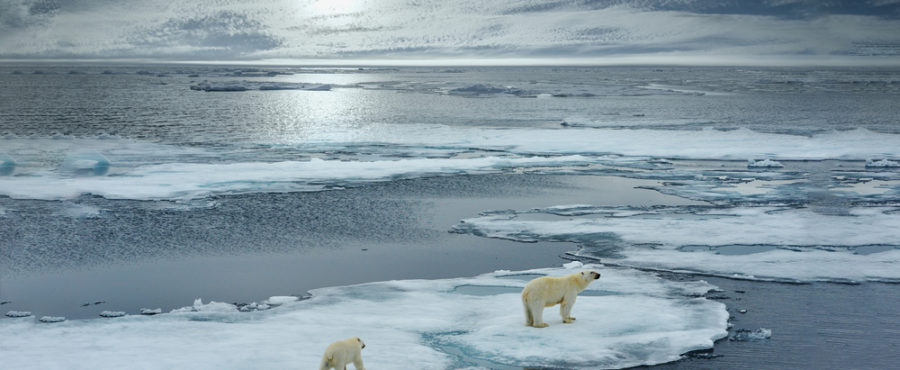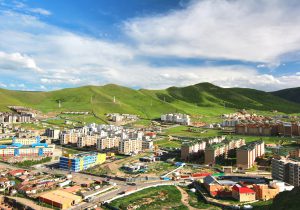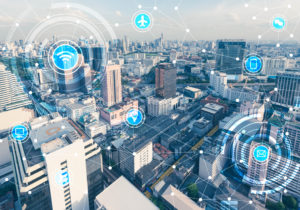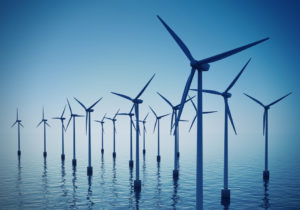
Robots serve as police officers in Dubai or Cleveland, Robo-Guard is patrolling a prison in South Korea, a humanoid robot Sophia has been granted Saudi citizenship and appeared on Jimmy Fallon’s night show. Robots are becoming better and better at understanding human speech, they can be life companions or travel buddies. Marek Kamiński is planning to go on a round-the-world trip in 2020. His partner is going to be a humanoid robot NOA. They will travel in an electric car equipped with various sensors, including those measuring air pollution. “On one hand, I want to explore the man-machine relation. On the other, artificial intelligence may help us fight the climate change”, explains the traveller.
“I am planning to go on the expedition in an electric car and with a humanoid robot NOA and I am going to start in London, then travel through Europe, Turkey, Iran, India, China, South Korea, Japan, United States, Canada and finish the trip back in London. We are starting our 5-month round-the-world trip in February next year. Our goal is to show the future of mankind, because this will be a one-on-one meeting with artificial intelligence”, traveller Marek Kamiński told Newseria Innowacje news agency in an interview.
In Belgium robots greet visitors at one of the university campuses. In Japan they clean offices and houses, help taking care of the elderly, and even make sushi. In France, humanoid robots have become nearly a part of everyday life at elderly care homes where they accompany the dwellers. However, artificial intelligence proves useful not only in routine activities.
Humanoid robots are becoming better and better at recognizing speech and lip-reading. They can recognize smells or flavours. A Chinese man decided to marry a robot he had built himself. Robots will accompany people more and more frequently. Already in 2020 will a robot be a companion on the AINTE 2019 expedition. Marek Kamiński announced that a robot called NOA will accompany him during his trip around the world.
“The mission of the expedition is to show that artificial intelligence will help us overcome climate change. This robot will be collecting large volumes of data regarding climate change and the collected information, in the blockchain format, will be later published in a report”, declares the traveller.
The machine will resemble a human not only in appearance. It can be talked to and one can see the entire expedition through the robot’s eyes (NOA will be equipped with a camera).
“It is undoubtedly a major challenge to make the robot a man’s friend, to make it talk freely. We are developing certain metadata solutions that will make the robot behave in a moderately natural way but this is a great challenge”, assesses Kamiński.
As the traveller points out, though the robot itself has been made in China, its core components are Polish-made.
“This is a robot by Sunbot but its core component, software, is created in Poland. Many other elements are made in Poland, too, such as the Airly sensor, detectors, Xoxo modem which will guarantee continuous access to Wi-Fi or cloud. This is also very much an expedition based on Polish technology, industry 4.0”, stresses Marek Kamiński.
In his expedition, Kamiński will be travelling in an electric car and in this way, he will repeat his last year’s “No Trace Expedition” to Japan. He then travelled 30 thousand kilometres by an electric car and in this way demonstrated that even such a long trip may be neutral to the environment. In his next year’s trip around the world, he will not only travel in a zero-emission car but will be accompanied by a robot which will be measuring air pollution.
In the future, it is the artificial intelligence that may effectively help us fight the climate change. Marek Kamiński stresses that how our planet will look in the future depends, among other things, on the development of modern technologies and how they will be used for counteracting climate change. The mission of the expedition is to demonstrate the benefits of technology. Further, interaction between the traveller and the robot is to draw attention to the need of trust – the foundation of each innovation.
“I am not a fan of technology as such. I am a fan of technology which helps us live. And I would expect technologies to make people happier. Our foundation is now working on the “WALK4LIFE” application – this is an attempt to have technology overcome lifestyle diseases like depression, occupational burnout, obesity”, explains Marek Kamiński.
Source: Newseria




